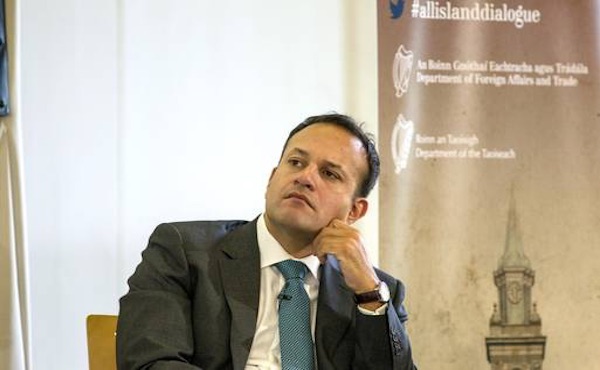
By Brian Feeney (for Irish News)
In the 1930s efforts by northern nationalists to persuade Eamon de Valera to take some action about partition came to nothing.
In the Anglo-Irish Treaty talks with Chamberlain in 1938 which saw the return of the Treaty ports, he refused to press the case of northern nationalists despite representations from people like Cahir Healy, the former Fermanagh MP, and the bishop of Down and Connor.
The northerners were disgusted at his ‘aloof’ attitude.
It would be thirty years before John Hume got the Irish government and northern nationalists onto the same track.
Hume didn’t always agree with Irish government policy but he never publicly disagreed with it.
When he became leader of the SDLP in 1980 he made the party to all intents and purposes the Irish government in the north.
As a result, the door to the office of An Taoiseach whoever that might be was always open to him.
We’re a long way from that position today.
Last week there was a ferocious row between Gerry Adams and Leo Varadkar about the doomed Stormont talks.
Adams accused the Irish government of “malicious, shameful, untruthful briefing of the media about the state of the talks”.
He said the Taoiseach was behaving “in a reckless way” and should start behaving like An Taoiseach instead of the leader of Fine Gael.
Those views were repeated by Conor Murphy as talks began again on Monday.
Sinn Fein are suspicious that the Irish and British governments will try to shoehorn republicans into some last minute deal they’ve cobbled together to save Arlene Foster.
This spat is just the latest in a series of rows since Varadkar has become Taoiseach but relations with Enda Kenny, if not so openly abusive, weren’t much better.
There are faults on both sides but we know the main reason. Sinn Fein is now a major player in the politics of the Republic as well as in the north, a position unique since partition.
Both Fianna Fail and Fine Gael, far from welcoming the development, are determined to keep Sinn Fein out of government in Dublin. For both of them, particularly Fianna Fail, Sinn Fein is the enemy.
The downside of these circumstances is that the losers are northern nationalists.
In the assembly and Westminster elections this year Sinn Fein polled 70 per cent of nationalist voters who decisively rejected Westminster.
Many now look to Dublin to remedy the disaster of Brexit but discover that the Irish government and Varadkar in particular either ignores or derides the representations of the party which overwhelmingly speaks for northerners.
Sinn Fein very early on articulated its own policy on Brexit as special status for the north.
As far as anyone can see Varadkar has no policy on the north and Brexit.
Instead, the Irish government submerges any policy responsibility in the negotiating position of the EU27 and relies on Michel Barnier to look after Irish interests. Hmm.
Given the present animosity between the government and Sinn Fein it seems inconceivable that the government and Sinn Fein could meet and hammer out a common Irish policy for the north.
Yet why not? All the evidence from the past fifty years is that when there is agreement north and south about what is in the best interests of Ireland most progress with the British can be made.
As it is, since the government has set its face against any representation from Sinn Fein simply because it is from Sinn Fein, northern nationalists are deprived of an input they are entitled to have.
After all, it was Varadkar last week who provocatively suggested that soon the majority of northerners will be Irish passport holders to escape the worst consequences of Brexit.
Yet in the same breath he rejects any contribution from the representatives of the majority of Irish passport holders in the north.
Adams has a point when he says Varadkar should act like An Taoiseach.
Instead of trading insults and smart soundbites across the floor of the Dail and on Twitter he should invite a Sinn Fein delegation into the Taoiseach’s office to try to find common ground north and south, so that there is a united Irish approach to counter the dire consequences of Brexit.
Or is he afraid to annoy Fianna Fail?
![[Irish Republican News]](https://republican-news.org/graphics/title_gifs/rn.gif)
![[Irish Republican News]](https://republican-news.org/graphics/title_gifs/harp.gif)

